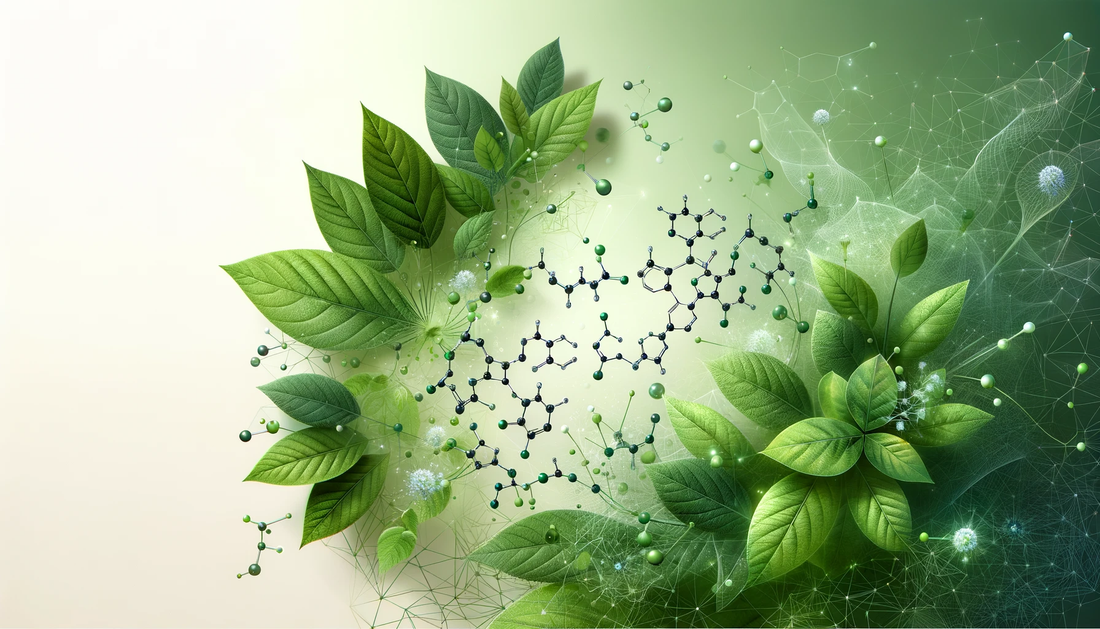
Bioactive Compounds in Skincare: Beyond the Basics to Advanced Healing
The realm of skincare has witnessed a significant evolution, transitioning from traditional, often simplistic formulations to scientifically advanced solutions. At the heart of this transformation lies a growing interest in bioactive compounds—naturally occurring chemicals found in plants, animals, and certain minerals that offer more than just superficial benefits, actively contributing to skin health, healing, and regeneration. This article delves into the fascinating world of bioactive compounds, exploring their roles and the promise they hold for the future of skincare.
Please note that Healfast does not endorse using any of these compounds on your own, and highly recommends consulting with a medical practitioner before starting any treatment, especially in cases of medical conditions and scarring left by surgeries or otherwise. This article is purely informative in intent, meant to cover the biological mechanisms of how these compounds work, and is not meant as a recommendation or treatment guide.
The Science of Bioactive Compounds
Bioactive compounds are pivotal in the formulation of modern skincare products due to their ability to interact with biological systems, enhancing skin's natural processes of repair and renewal.

Key Types of Bioactive Compounds in Skincare:
- Peptides: Small chains of amino acids that signal skin to produce collagen, promoting elasticity and reducing wrinkles.
- Antioxidants: Molecules that neutralize free radicals, protecting skin from damage and supporting healing processes.
- Growth Factors: Proteins that stimulate cell growth, playing a crucial role in wound healing and skin regeneration.
Peptides, antioxidants, and growth factors stand out for their proven efficacy in enhancing skin health.
Bioactive Compounds and Skin Regeneration
The quest for youthful, resilient skin has led to an increased focus on compounds that not only prevent damage but also actively repair and rejuvenate skin. Among these, peptides, antioxidants, and growth factors stand out for their proven efficacy.

Regenerative Properties:
- Peptides: Mimic the skin's natural communication mechanisms, encouraging the synthesis of collagen and elastin.
- Antioxidants: Defend against oxidative stress, a key factor in premature aging and impaired wound healing.
- Growth Factors: Accelerate the repair of damaged skin, reducing recovery time and enhancing the overall appearance.
Clinical studies underscore the benefits of these bioactive compounds, highlighting their transformative potential in skincare formulations.
Bioactive Compounds in Healing and Repair
Beyond general skin health, bioactive compounds can offer targeted benefits for specific concerns such as acne scars, inflammation, and the signs of aging.
Key Compounds for Healing:
- Hyaluronic Acid: Renowned for its hydrating properties, it also plays a role in wound healing by regulating inflammation and signaling the body to build more blood vessels.
- Niacinamide: Reduces inflammation and improves hyperpigmentation, making it beneficial for acne-prone and aging skin.
- Retinoids: Promote cell turnover, aiding in the repair of damaged skin and diminishing the appearance of scars and wrinkles.
Incorporating these compounds into daily skincare routines can potentially enhance skin's healing capacity and maintain its health and vitality.

Innovations and Future Directions
The field of skincare is on the cusp of revolutionary changes, with emerging technologies and research focusing on maximizing the efficacy and delivery of bioactive compounds.
Advancements in Skincare:
- Improved Formulation Techniques: Ensuring deeper penetration and sustained release of bioactive compounds for longer-lasting effects.
- Personalized Skincare: Leveraging genetic and microbiome analyses to tailor skincare regimens to individual needs, optimizing the benefits of bioactive compounds.
- Sustainable and Ethical Sourcing: With a growing consumer demand for transparency, the skincare industry is moving towards responsibly sourced and produced bioactive compounds.
Conclusion
Bioactive compounds represent the next frontier in skincare, offering a scientific approach to skin health that goes beyond superficial treatment to foster genuine healing and regeneration. As research continues to unveil the full potential of these powerful ingredients, the future of skincare looks promising—marked by personalized, effective, and ethically produced solutions that cater to the evolving needs and values of consumers worldwide. The journey of bioactive compounds in skincare is just beginning, promising a future where beauty and health go hand in hand, powered by the wonders of science.
References:
https://www.ncbi.nlm.nih.gov/pmc/articles/PMC5172479/https://www.ncbi.nlm.nih.gov/pmc/articles/PMC6616534/
https://www.ncbi.nlm.nih.gov/pmc/articles/PMC3583892/
https://www.ncbi.nlm.nih.gov/pmc/articles/PMC6463093/
https://www.ncbi.nlm.nih.gov/pmc/articles/PMC7577280/
https://www.ncbi.nlm.nih.gov/pmc/articles/PMC2726839/
General Disclaimer: All information here is for educational purposes only and is not meant to cure, heal, diagnose nor treat. This information must not be used as a replacement for medical advice, nor can the writer take any responsibility for anyone using the information instead of consulting a healthcare professional. All serious disease needs a physician.
















